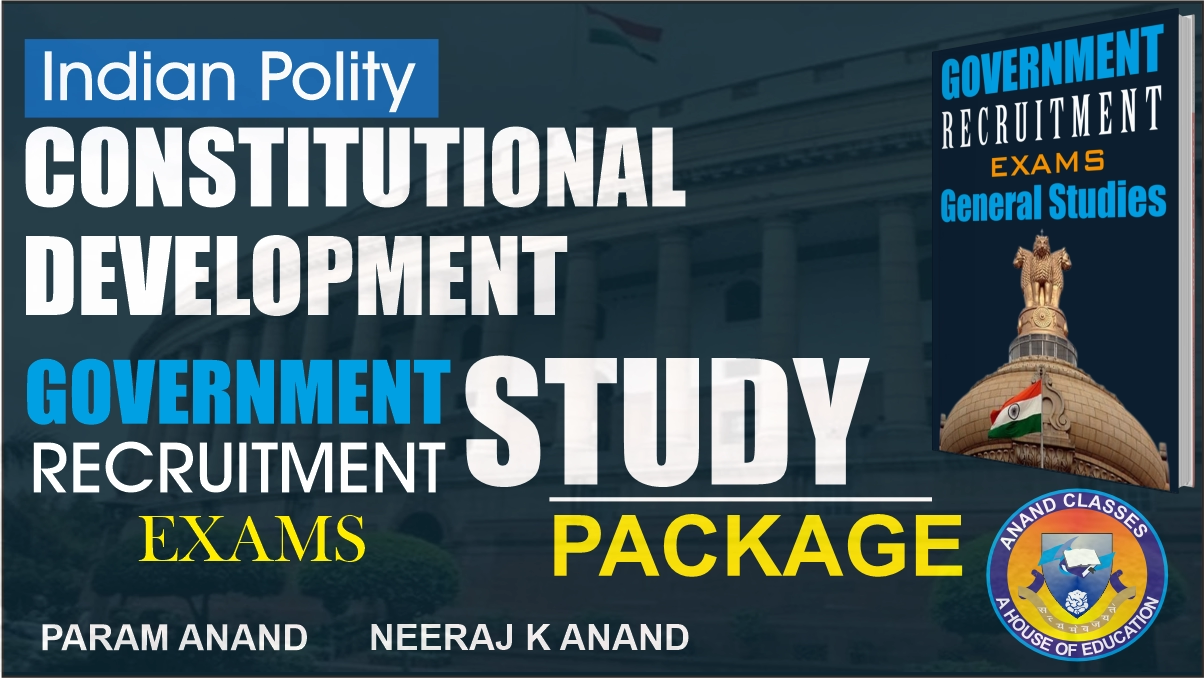NIRMAL ANAND Educations
Written by: Neeraj Anand
Published by: Anand Technical Publishers
Under: Anand Classes
Contact: +919463138669 | Email: anandclasses1996@gmail.com
Buy Complete Study Material: Click Here
Schedules in the Constitution of India
The Indian Constitution contains 12 schedules, each detailing specific aspects of governance. These schedules are important for exams like NDA, CDS, UPSC, AFCAT, RRB, IBPS-PO, SSC, KVS, and CLAT.
List of Schedules
📌 Related Posts:
Interrogative Negative Sentences | Explain in Hindi | NDA, CDS, UPSC, AFCAT, RRB, IBPS-PO, SSC, KVS, CLAT Exams
|
Characteristics of Constitution|NDA,CDS,UPSC,AFCAT,RRB,IBPS-PO,SSC,KVS,CLAT,MCQs,Notes
|
Commonwealth Citizenship | NDA,CDS,UPSC,AFCAT,RRB,IBPS-PO,SSC,KVS,CLAT Exams Notes
|
Constituent Assembly | NDA, CDS, UPSC, AFCAT, RRB, IBPS-PO, SSC, KVS, CLAT
|
Fundamental Rights (Part III)–Important Features | NDA,CDS,UPSC,AFCAT,RRB,IBPS-PO,SSC,KVS,CLAT Exams Notes
1st Schedule
Subject Matter: Names of States, Union Territories, and their jurisdiction.
Articles Covered: 1 and 4
2nd Schedule
Subject Matter: Provisions related to salaries, allowances, and privileges of various officials.
Articles Covered: 59, 65, 75, 97, 125, 148, 158, 164, 186, 221
Includes:
- President and Governors
- Speaker & Deputy Speaker (Lok Sabha and Legislative Assembly)
- Chairman & Deputy Chairman (Rajya Sabha and Legislative Council)
- Judges of Supreme Court and High Courts
- Comptroller & Auditor-General of India
3rd Schedule
Subject Matter: Oaths and affirmations for officials and legislators.
Articles Covered: 75, 84, 99, 124, 146, 173, 188, 219
4th Schedule
Subject Matter: Allocation of Rajya Sabha seats among States and Union Territories.
Articles Covered: 4 and 80
5th Schedule
Subject Matter: Administration and control of Scheduled Areas and Tribes.
Article Covered: 244
6th Schedule
Subject Matter: Special provisions for tribal areas in Assam, Meghalaya, Tripura, and Mizoram.
Articles Covered: 244 and 275
7th Schedule
Subject Matter: Distribution of powers between Union and State Governments (Union List, State List, Concurrent List).
Article Covered: 246
8th Schedule
Subject Matter: Recognized languages in India (Initially 14, now 22).
Articles Covered: 344 and 351
9th Schedule
Subject Matter: Laws related to land reforms and protection from judicial review (added by the 1st Amendment in 1951).
Article Covered: 31-B
10th Schedule
Subject Matter: Anti-defection law (added by the 52nd Amendment Act of 1985).
Articles Covered: 102 and 191
11th Schedule
Subject Matter: Powers and responsibilities of Panchayats (added by the 73rd Amendment Act of 1992).
Article Covered: 243-G
12th Schedule
Subject Matter: Powers and responsibilities of Municipalities (added by the 74th Amendment Act of 1992).
Article Covered: 243-W
FAQs on Schedules of the Indian Constitution
Q1: What is the significance of schedules in the Indian Constitution?
A: Schedules provide detailed provisions related to governance, administration, and division of powers in India.
Q2: How many languages are recognized under the 8th Schedule?
A: Initially 14, now 22 languages are recognized.
Q3: What is the purpose of the 10th Schedule?
A: It deals with anti-defection laws for Members of Parliament and State Legislatures.
Q4: Which Schedule deals with Panchayati Raj?
A: The 11th Schedule added by the 73rd Amendment Act of 1992.
MCQs on Schedules in the Indian Constitution
Q1: Which schedule contains provisions related to Rajya Sabha seat allocation?
a) 3rd Schedule
b) 4th Schedule
c) 6th Schedule
d) 8th Schedule
Answer: b) 4th Schedule
Explanation: The 4th Schedule specifies the allocation of seats in the Rajya Sabha to states and Union Territories.
Q2: Which amendment added the 9th Schedule to the Constitution?
a) 1st Amendment
b) 7th Amendment
c) 21st Amendment
d) 42nd Amendment
Answer: a) 1st Amendment
Explanation: The 1st Amendment Act of 1951 introduced the 9th Schedule to protect land reform laws from judicial scrutiny.
Q3: The Anti-Defection Law is included in which Schedule?
a) 7th Schedule
b) 8th Schedule
c) 10th Schedule
d) 11th Schedule
Answer: c) 10th Schedule
Explanation: The 52nd Amendment Act of 1985 added the 10th Schedule, dealing with disqualification on the grounds of defection.




